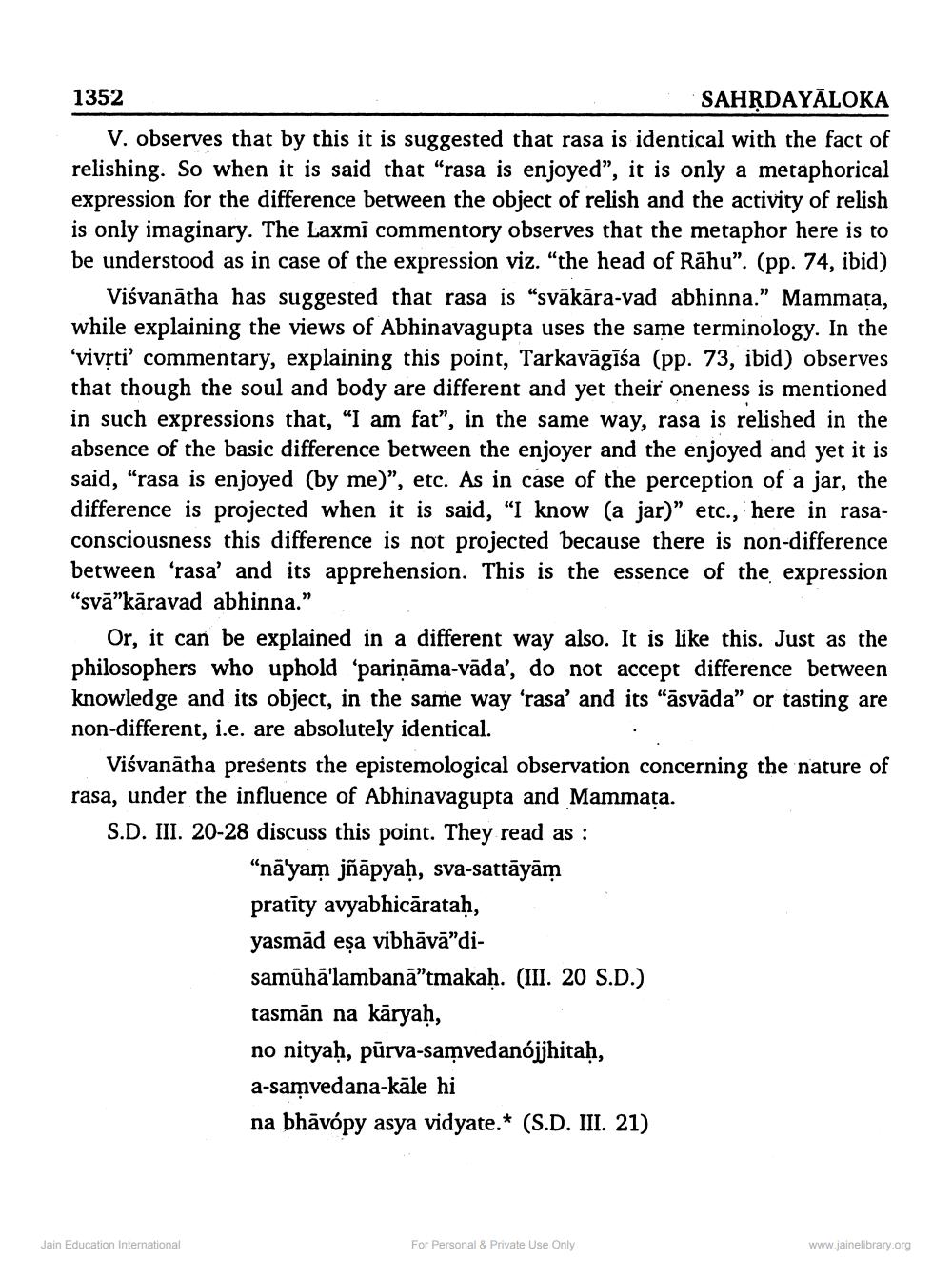________________
1352
SAHRDAYĀLOKA
V. observes that by this it is suggested that rasa is identical with the fact of relishing. So when it is said that "rasa is enjoyed”, it is only a metaphorical expression for the difference between the object of relish and the activity of relish is only imaginary. The Laxmi commentory observes that the metaphor here is to be understood as in case of the expression viz. "the head of Rāhu". (pp. 74, ibid)
Viśvanātha has suggested that rasa is “svākāra-vad abhinna.” Mammața, while explaining the views of Abhinavagupta uses the same terminology. In the 'vivști' commentary, explaining this point, Tarkavāgāśa (pp. 73, ibid) observes that though the soul and body are different and yet their oneness is mentioned in such expressions that, "I am fat”, in the same way, rasa is relished in the absence of the basic difference between the enjoyer and the enjoyed and yet it is said, “rasa is enjoyed (by me)", etc. As in case of the perception of a jar, the difference is projected when it is said, “I know (a jar)” etc., here in rasaconsciousness this difference is not projected because there is non-difference between 'rasa' and its apprehension. This is the essence of the expression "svā”kāravad abhinna."
Or, it can be explained in a different way also. It is like this. Just as the philosophers who uphold 'pariņāma-vāda', do not accept difference between knowledge and its object, in the same way 'rasa' and its "āsvāda" or tasting are non-different, i.e. are absolutely identical.
Viśvanātha presents the epistemological observation concerning the nature of rasa, under the influence of Abhinavagupta and Mammața. S.D. III. 20-28 discuss this point. They read as :
“nā'yam jñāpyaḥ, sva-sattāyām pratīty avyabhicārataḥ, yasmād esa vibhāvā"disamūhā'lambanā”tmakaḥ. (III. 20 S.D.) tasmān na kāryah, no nityaḥ, pūrva-samvedanójjhitaḥ, a-samvedana-kāle hi na bhāvópy asya vidyate.* (S.D. III. 21)
Jain Education International
For Personal & Private Use Only
www.jainelibrary.org




